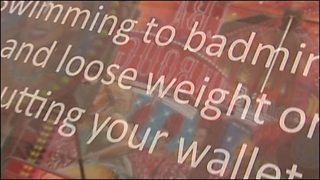Punctuation! How to Mind your P's and Q's...

What's wrong with these video's?
The English language is a minefield of potential grammatical errors which can really shake your confidence in writing. Split infinitives (“to boldly go”), grocers’ apostrophes (“Carrot’s 30p a lb) and the whole of Twitter waiting to leap on you if you say “should of” instead of “should have”. But wait! Do not despair, and don’t feel guilty. A lot of British schoolchildren weren’t actually taught English grammar, and in fact had to do a crash course when they came to learn another language, once teachers realised that if you didn’t know what an infinitive was in English you were unlikely to recognise it in French.
So here is our print-out-and-pin-up checklist for the most common errors you might be making. Pin ’em somewhere you’ll keep seeing them and you’ll absorb them. Soon you’ll be sniggering at everyone else’s errors… (except you won’t, because you’re too nice).
1. There/they’re/their
Many grammatical errors come from the sound of words, and the speed at which you write. Your mental voice, reading what you’ve written aloud, means it sounds correct. Double-check, particularly the word “there”.
“They’re” is the contraction of “they are”. “They’re living in a beautiful house.”
“Their” is possessive – the thing that belongs to them. “Their house is beautiful.”
“There” – “Look at the beautiful house over there.”
2. Too cool for colons?
A colon is used to separate two independent clauses that are both standalone sentences in their own right. The second part of a sentence that follows a colon should explain the first, e.g. “I have very little time to have lunch: my job is so busy.” It can also be used before a list, when the list is not within a sentence.
Semi-colons are used to break up a list, and also when the second clause is linked to the first by a transitional expression, like “so, therefore, nevertheless” etc. “High temperatures have caused the reservoirs to dry up; consequently, a hosepipe ban is in place.”
3. Making it up
To whom it may concern: “alot" is not a word. Neither is “thankyou". Or “thank-you”. OK? Thank you. A lot.
4. Coulda woulda shoulda
Here we have the same “but it sounds right” problem. It should be “could have, should have, would have” not “could of” etc. If you want to contract it, then it should be “could’ve”, “should’ve”.

The English language is a minefield of potential grammatical errors.
5. It’s all about you
“Your” is the thing that belongs to you. Your house, your rules. “You’re” is what you are. “You’re amazing.”
6. The Radio 4 favourite
This one has pedants hopping up and down with excitement. When should you use “less” and when should you use “fewer”?
If you can’t count it, use “less”. If you can count it, use “fewer”.
“There’s less sand here.”
“There are fewer people down this end of the beach.”
7. What is it?
Oh, it’s a complicated thing. “Its” is possessive – the thing belonging to it. “It’s” is a contraction of “it is”. The reason this confuses people is because generally when something has an '’s' at the end, it means it’s possessive; but not here.

“It’s a beautiful day.”
“That flower’s opened its petals in the sun.”
8. Grocers’ apostrophe
It’s a truth universally acknowledged that vegetable stallholders in particular are never happier than when they are sprinkling apostrophes around like slug pellets. “Carrot’s”, “Plum’s” and everyone’s favourite – “Potato’s” –which manages to get a plural and an apostrophe wrong in one sign. An apostrophe does NOT make a plural.
9. Me, Myself and I
How you refer to yourself grammatically can cause problems. The sentence, “When those biscuits have cooled, can you give one to Sarah and I?” may sound slightly over-formal and therefore correct, but it’s wrong. It should be, “When those biscuits have cooled, can you give one to Sarah and me?” To figure it out, try removing Sarah from the sentence (poor Sarah, no biscuits for her). It would sound odd if you said, “When those biscuits have cooled, can you give one to I?” unless you were the BFG or Ali G. So that’s how you know it’s “me”.
10. In effect, for example…
Two expressions beloved of students trying to boost their word count are “ie” and “eg”, which mean two different things. Many people believe them to be interchangeable – they’re not. From the Latin, “ie” stands for “id est”, which means “that is”, and “eg” is an abbreviation of “exempli gratia”, which means “for the sake of example”. You would use “ie” to give further clarification, and “eg” to give an example.
So there we are – go forth and write fluently. Good luck!
-
![]()
How to read the cockney alphabet
Michael Rosen reads through the Cockney alphabet, from A for 'orses to Z for his hat.
-
![]()
Guide to good style
Consult the BBC Academy style guide on grammar, spelling and punctuation.
-
![]()
Test yourself!
BBC News – Ten questions on grammar.



